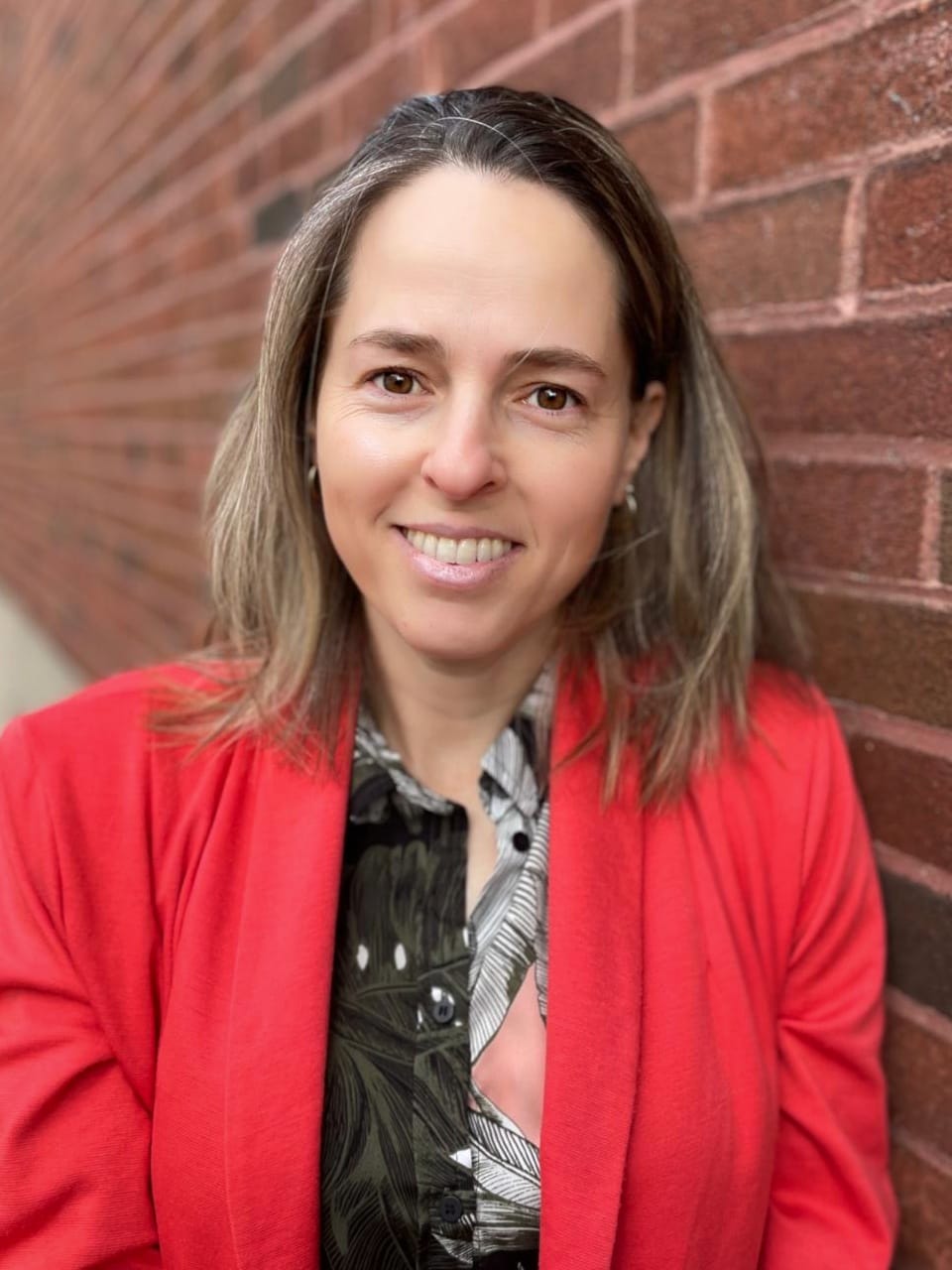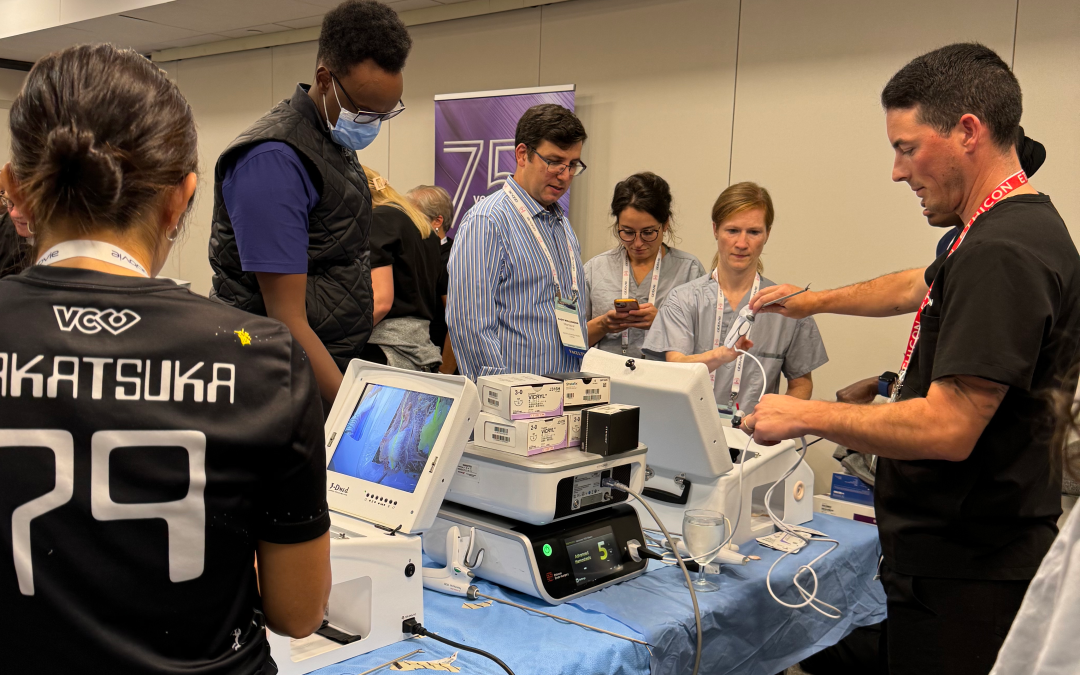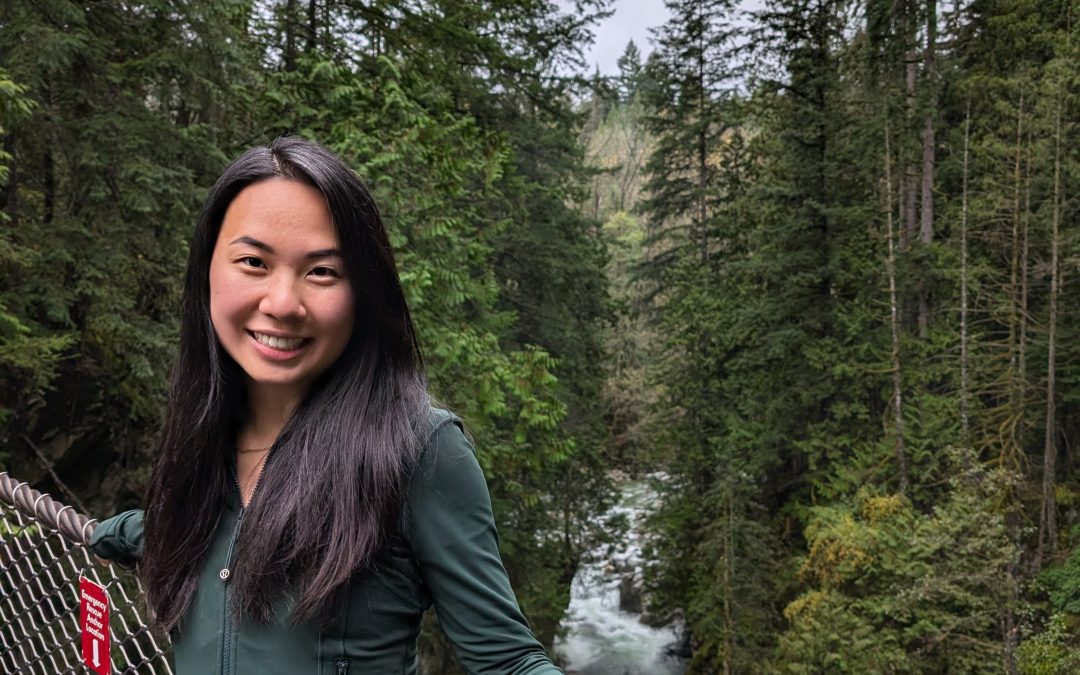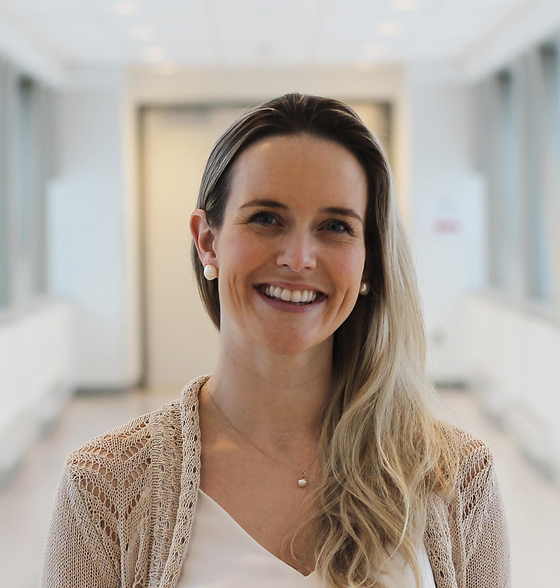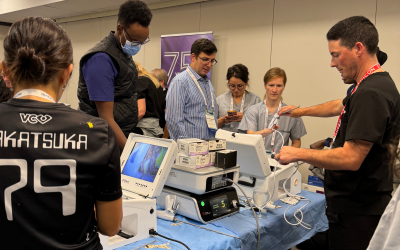Where are you from, and where did you complete your medical training?
I am from Israel, although in the last ten years we’ve moved around the globe quite a bit. I completed my medical training at The Hebrew University of Jerusalem. Three years into my residency I decided to take a break to conduct a postdoc research project at Stanford University. Together with my partner and children, we spent three wonderful years in California, where I studied the maternal-fetal interface. After my postdoc, I returned to Israel to finish my residency, and now I’m here on an MIS fellowship at the University of Montreal.
What made you decide to pursue this fellowship?
I have always been passionate about surgery and working with my hands, and gynecologic laparoscopy, in particular, allows me to merge these interests in a meaningful way. It offers the perfect balance of patient interaction, the mastery of delicate and precise skills, and the opportunity to deeply understand complex diseases.
For instance, following a patient with endometriosis through different stages of life and tailoring therapy to meet her specific needs has been a rewarding process. And when it’s time for surgery, it’s about applying the knowledge and techniques you’ve been honing over the years. I see this in a way similar to how a Renaissance artist approaches their craft or how a watchmaker meticulously fixes and fine-tunes intricate mechanisms—both require years of practice, precision, and a deep understanding of the craft.
What makes your fellowship program unique?
One of the best aspects of this fellowship is the chance to work alongside many different surgeons, each with their own unique techniques and “secret” tips. I rotate through several hospitals in Montreal (Hôpital Maisonneuve-Rosemont, CHUM, Fleury), each with distinct patient populations and staff members who’ve trained in different places, giving each their own unique way of doing things. I feel that, as I develop my own style, I end up combining my favourite approaches that I learnt from each surgeon. The entire program is conducted in French, which also adds a lot of flavour to the program!
Is French your first language?
Pas du tout! But I’ve always had a strong interest in learning languages. I took French in high school, but when I arrived in Montreal, I quickly realized my French wasn’t nearly good enough. It was a bit nerve-wracking at times, especially in the OR, where I worried I might not understand the instructions. Honestly, it led to some funny moments along the way. When I started, I mistakenly called the ‘Pince à champs’ (a sharp, thorny clamp) ‘Pince méchante’ (mean), which felt very fitting at the time, given how sharp it was. Now, I’m completely fluent, but I still chuckle at that early mix-up. The challenge now is getting used to asking for surgical instruments in anything other than their French names — it’s become second nature to me at this point!
How was your experience as a newcomer to Canada?
From my perspective, the fellowship at UDEM is also special in that it is exceptionally welcoming to international medical graduates, like myself. In the last five years we have had fellows from Lebanon, Switzerland, Chile, Israel and more. This, in my opinion, generates a very open and diverse atmosphere that really strives to see the uniqueness and potential of people.
On a personal note, the last two years have been filled with many sad and discouraging moments, especially following the horrifying attack on October 7th and the ongoing war since then. So many lives have been lost, countless casualties, and immense suffering on both sides. I remain hopeful for the safe return of the 59 kidnapped Israelis and for an end to this war that has dragged on for far too long. I know many in the region have lost faith that peace is possible, but I choose to remain optimistic. Some might call me naive, but I suppose I’m just an optimist.
Thank you for sharing, on a totally different arena, What is your main area of research interest?
I love research! Currently, I’m leading a project exploring hemoglobin dynamics in patients undergoing surgery for uterine fibroids. We found that being foreign-born is independently associated with preoperative anemia, but targeted treatments can mitigate these differences. I think this delivers an optimistic message: while disparities exist, attentive care can address them, ensuring our patients arrive stronger for their surgeries. Did I mention I’m an optimist?
What would you say to someone who was considering pursuing a MIGS fellowship?
I was helped by others along my journey, and I’m happy to be in a position now where I can help those who are going through the same path. I often get approached by current residents from Israel asking about the process. As international medical graduates, we often face challenges with the bureaucracy, including issues around visas, licensure, and more. Learning from others’ experiences can be incredibly valuable, as it helps navigate these complexities. It’s true that laparoscopy fellowships are highly competitive, but I think it’s worth the effort! I would tell them that with a lot of hard work, persistence, and guidance from mentors, they can make it. Trust yourself and keep pushing forward!

